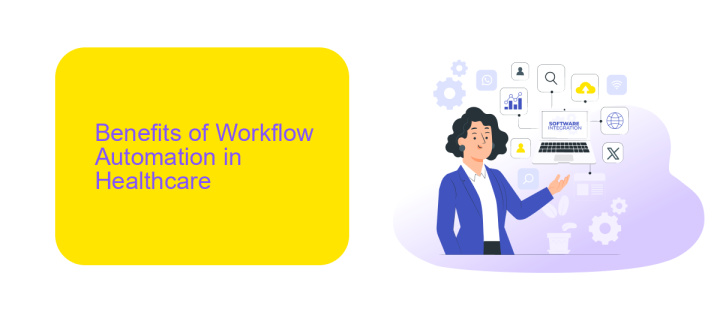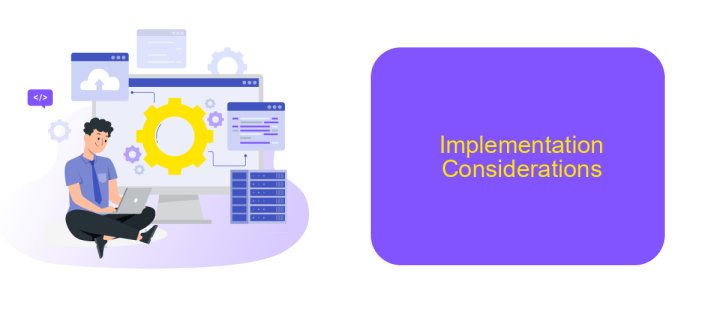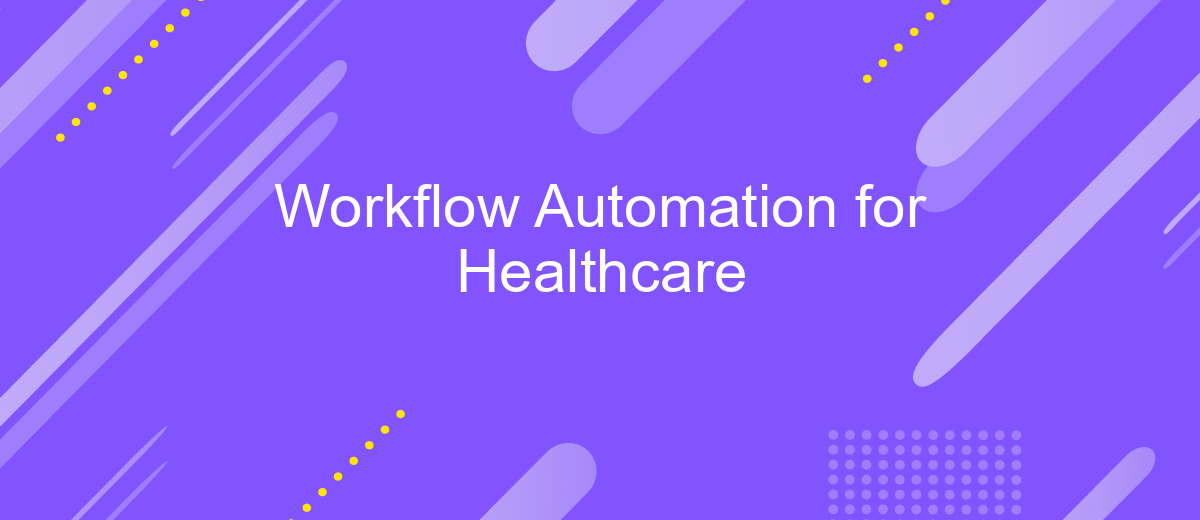Workflow Automation for Healthcare
Workflow automation in healthcare is revolutionizing the industry by streamlining processes, reducing errors, and enhancing patient care. By leveraging advanced technologies, healthcare providers can automate routine tasks, allowing medical professionals to focus more on patient interactions and critical decision-making. This article explores the benefits, implementation strategies, and real-world examples of workflow automation in the healthcare sector.
Introduction
Workflow automation in healthcare is revolutionizing the way medical facilities operate, offering significant improvements in efficiency, accuracy, and patient care. By automating routine tasks, healthcare providers can focus more on critical decision-making and patient interaction, leading to better health outcomes and operational efficiency.
- Streamlined administrative processes
- Improved patient data management
- Enhanced communication between departments
- Reduction in human error
- Increased compliance with regulatory standards
Services like ApiX-Drive play a crucial role in this transformation by enabling seamless integration between various healthcare systems and applications. ApiX-Drive allows healthcare providers to automate workflows without needing extensive technical knowledge, ensuring that data flows smoothly between different platforms and reducing the burden on IT departments. This leads to a more cohesive and efficient healthcare environment, ultimately benefiting both providers and patients.
Benefits of Workflow Automation in Healthcare

Workflow automation in healthcare significantly enhances efficiency by streamlining repetitive tasks, thereby allowing healthcare professionals to focus more on patient care. Automated processes reduce the likelihood of human error, ensuring higher accuracy in patient records, billing, and appointment scheduling. This not only improves the overall patient experience but also optimizes the use of resources, leading to cost savings for healthcare facilities.
Moreover, integrating various healthcare systems through services like ApiX-Drive can further enhance workflow automation. ApiX-Drive facilitates seamless data transfer between different platforms, ensuring that vital information is readily accessible when needed. This integration minimizes manual data entry, reduces administrative burdens, and ensures that healthcare providers have up-to-date information, thereby improving decision-making and patient outcomes. By leveraging workflow automation and integration services, healthcare organizations can achieve greater operational efficiency and deliver higher-quality care.
Key Areas for Workflow Automation in Healthcare

Workflow automation in healthcare is essential to improve efficiency, reduce errors, and enhance patient care. By automating repetitive tasks, healthcare providers can focus more on patient interactions and less on administrative duties. Here are some key areas where workflow automation can make a significant impact:
- Appointment Scheduling: Automating appointment bookings and reminders can reduce no-shows and optimize the use of medical staff and facilities.
- Patient Records Management: Streamlining the management of electronic health records (EHRs) ensures quick and accurate access to patient data, improving decision-making and care coordination.
- Billing and Claims Processing: Automation in billing and insurance claims can reduce errors, speed up reimbursements, and improve financial management.
- Lab Test Results: Automating the delivery of lab test results to both patients and healthcare providers can reduce wait times and enhance treatment plans.
- Integration of Systems: Services like ApiX-Drive can help integrate various healthcare systems, ensuring seamless data flow and better interoperability between different platforms.
By focusing on these key areas, healthcare organizations can leverage workflow automation to enhance operational efficiency, reduce costs, and ultimately provide better patient care. As technology continues to evolve, the potential for further automation in healthcare will only grow, offering even more opportunities for improvement.
Implementation Considerations

Implementing workflow automation in healthcare requires careful consideration of various factors to ensure seamless integration and optimal performance. First, it is essential to evaluate the existing processes and identify areas where automation can bring the most significant benefits. This includes understanding the workflow, pinpointing bottlenecks, and determining the potential for error reduction and efficiency gains.
Next, selecting the right tools and platforms is crucial. Healthcare organizations should choose solutions that are compatible with their current systems and can be easily integrated. Tools like ApiX-Drive can facilitate these integrations by providing a user-friendly interface and robust capabilities for connecting different applications and services.
- Assess current workflow and identify areas for automation
- Select compatible tools and platforms for seamless integration
- Utilize services like ApiX-Drive for efficient application connectivity
- Ensure compliance with healthcare regulations and data security standards
Finally, it is vital to provide adequate training for staff to ensure they can effectively use the new automated systems. Continuous monitoring and evaluation are also necessary to make adjustments and improvements as needed, ensuring the automation solution remains effective and aligned with the organization's goals.
Conclusion
Workflow automation in healthcare represents a significant leap forward in enhancing operational efficiency, reducing human error, and ensuring timely patient care. By streamlining administrative tasks, healthcare providers can focus more on patient outcomes and less on paperwork. The integration of advanced technologies, such as electronic health records (EHRs) and automated scheduling systems, has already shown promising results in improving the overall healthcare experience for both patients and providers.
Moreover, the implementation of integration services like ApiX-Drive can further simplify the process by connecting various healthcare applications seamlessly. This enables real-time data synchronization and reduces the manual effort required to manage disparate systems. As the healthcare industry continues to evolve, embracing workflow automation and robust integration solutions will be crucial in meeting the growing demands and challenges, ultimately leading to a more efficient and effective healthcare system.
FAQ
What is workflow automation in healthcare?
How can workflow automation improve patient care?
What types of tasks can be automated in a healthcare setting?
How can I implement workflow automation in my healthcare facility?
What are the benefits of using ApiX-Drive for workflow automation in healthcare?
Time is the most valuable resource in today's business realities. By eliminating the routine from work processes, you will get more opportunities to implement the most daring plans and ideas. Choose – you can continue to waste time, money and nerves on inefficient solutions, or you can use ApiX-Drive, automating work processes and achieving results with minimal investment of money, effort and human resources.

